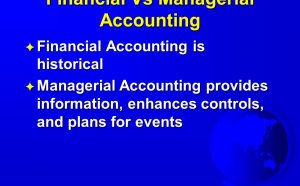
Accountant Vs. Financial Planner
Accounting and financial planning provide ambitious young professionals with rewarding and lucrative long-term career options. Both careers offer strong job growth as of 2015 and median incomes higher than the median across all fields. If you are bright, motivated, good with numbers and want to make big money, consider becoming an accountant or a financial planner.
Before diving into either career, understand they are quite different, despite both involving heavy doses of numbers and math. An accountant records, summarizes, analyzes and reports a business's financial transactions. Public accountants work for third-party firms and audit clients' financial records, a legal requirement for any publicly traded company. Internal accountants work for private companies and perform duties such as internal auditing, inventory accounting and financial forecasting. Sales is not a part of the career, other than the process of selling yourself and your services to potential clients.
A financial planner is a type of financial advisor who specializes in certain areas, such as tax planning, portfolio management and retirement planning. Financial planners often hold specific licenses and designations, the most common being that of a Certified Financial Planner (CFP). A CFP must pass rigorous exams in multiple areas of financial planning and, therefore, offers clients a higher degree of confidence when investing large sums of money. While a financial planner must be good with numbers and possess a keen understanding of how the markets work, it is arguably more important to have strong sales and networking skills. When you are new to the business, your employer is not likely to hand you high-net-worth clients to manage; you are tasked with building a book of business largely on your own.
Education
Though neither career imposes hard and fast educational requirements, most successful accountants and financial planners have at least a bachelor's degree. For accountants, the only time a licensing board requires you to complete a certain level of education is when you sit for the Certified Public Accountant (CPA) exam. Becoming a CPA requires 150 hours of post-secondary education, which is more than a bachelor's degree but does not necessarily entail completing a master's degree. Otherwise, individual firms doing the hiring, not state or federal boards, set education requirements for accountants.
You can become a financial planner without a bachelor's degree, as long as you pass the requisite securities exams for your specialties. Gaining the CFP designation requires completion of a bachelor's degree from an accredited school. This designation is almost a necessity to be taken seriously in the field, which makes a college education a de facto requirement for aspiring financial planners.
Skills Needed
As an accountant, you have to be focused, detail-oriented, adept with numbers and highly driven. Particularly for public accountants, the work hours are long for the first few years of your career. Accountants refer to the period from January until April as the busy season, when 60-hour weeks and beyond become the norm. The hours lessen as you work your way up the ranks, but this is unquestionably a field where rookies must pay their dues.
Financial planners are first and foremost salespeople. You could be a market wizard with preternatural math skills, but if you have no clients to impart your wisdom to, you are going to starve as a financial planner. While a strong natural market never hurts, those without robust clienteles of high-net-worth individuals (HNWIs) can still succeed as financial planners. Networking and selling yourself is an around-the-clock job. At social functions, happy hour and the gym, you can find successful financial planners working the room, making contacts and handing out business cards.
Apart from sales skills, you must have an unbridled love for the markets to succeed as a financial planner. If you do not enjoy waking up and immediately turning on a finance channel or accessing a mobile app that tracks the markets, this career might not be for you. Markets move so fast these days, and clients – particularly those with large portfolios who make you money – want a financial planner who keeps up.
Starting Salary
Pay structure marks a huge difference between accounting and financial planning. Accountants receive a straight salary; bonuses, when applicable, are usually determined by the performance of the firm as a whole. Financial planners, by contrast, receive either straight commission, or commissions and bonuses on top of a small base. It is very much a pay-for-performance career. Build a large client base, and you can become lavishly wealthy; struggle to generate business, and your financial planning career will likely be short-lived.
Share this Post
Related posts
Management Account VS Financial Account
‘Accounting’ is a process of systematically identifying, recording, classifying, reporting, analyzing and interpreting the…
Read MoreFinancial VS Managerial Accounting
Jeffrey Glen Within accounting there are two key fields that relate to different aspects of the businesses finances, financial…
Read More










